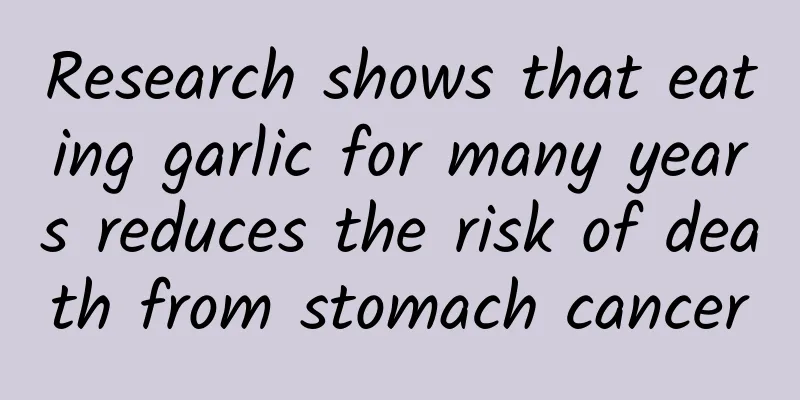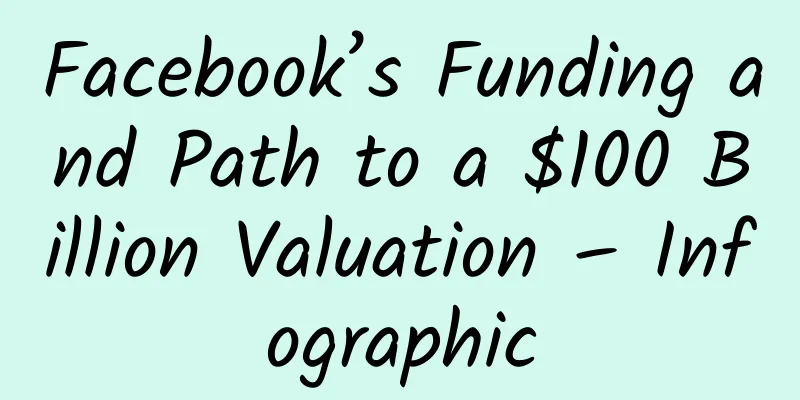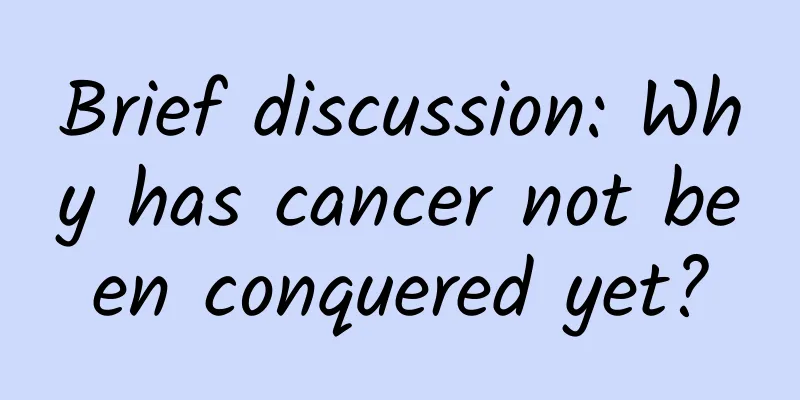Research shows that eating garlic for many years reduces the risk of death from stomach cancer

|
“If you don’t add garlic to your noodles, the flavor will be lost by half.” Sichuan’s pork with garlic, Hainan’s vermicelli shrimp with garlic, Shaanxi’s noodles with garlic…Garlic occupies an important position in “A Bite of China” and has contributed to countless Chinese delicacies. It is no exaggeration to say that the relationship between Chinese and garlic dates back thousands of years. In Er Ya Yi, written by Luo Yuan in the Song Dynasty, it is said that "the Hu people apply garlic to their bodies, loving its fragrance and also to protect against cold" (the "garlic" perfume is really unique), and Li Shizhen, a medical scientist in the Ming Dynasty, summarized the effects of garlic as "opening up the five internal organs, reaching all the orifices, removing cold and dampness, warding off evil, reducing swelling and pain, and digesting accumulated meat." Anyone who has eaten garlic has had this experience: they have to cover their mouths when talking to others after a meal. It is the unique pungent smell of garlic that has polarized people's attitudes towards it. So from the perspective of modern medicine, does this garlic, which people love and hate, have any health benefits? A 22-year randomized controlled trial (RCT) conducted by You Weicheng, Dean of the School of Clinical Oncology at Peking University, evaluated the effects of Helicobacter pylori treatment, vitamin supplementation, and garlic supplementation on the prevention of gastric cancer. The results showed that 7 years of continuous intake of garlic supplements was associated with a reduced risk of death from gastric cancer, and had similar effects to two weeks of Helicobacter pylori treatment and 7 years of vitamin supplementation, but was not associated with a reduced incidence of gastric cancer. The research paper was published in BMJ. Linqu County, Shandong Province, is one of the areas with the highest gastric cancer mortality rates in the world. From 1980 to 1982, the gastric cancer mortality rate was 55/100,000 for males and 19/100,000 for females (age-adjusted). In 1995, researchers recruited volunteers in Linqu County. After screening according to the inclusion criteria, a total of 3,365 volunteers from areas with a high incidence of gastric cancer were included as RCT subjects. The 3365 subjects were aged 35-64 years. Among them, 2258 subjects with positive Helicobacter pylori antibody serology were randomly assigned to three interventions or placebo groups, including Helicobacter pylori treatment group, vitamin supplement group and garlic supplement group; 1107 subjects with negative Helicobacter pylori were also randomly assigned to vitamin supplement group, garlic supplement group or placebo group. The groups are as follows: After 22.3 years of follow-up from 1995 to 2017, there were 151 gastric cancer patients and 94 gastric cancer deaths among all 3365 subjects. Among them, 79% of gastric cancer patients and 81% of gastric cancer deaths were from people with baseline Helicobacter pylori positive. Treatment of Helicobacter pylori and intake of vitamin supplements can significantly reduce the risk of gastric cancer. After multivariable adjustment, the risk of gastric cancer in participants who received Helicobacter pylori treatment was 52% lower than that in the control group (P<0.001), and the risk of gastric cancer in participants who took vitamin supplements was 36% lower than that in the control group (P=0.02). In terms of the proportion of gastric cancer, participants who took garlic supplements were slightly less than those in the control group, but the difference was not significant. From the perspective of gastric cancer mortality, all three interventions were protective factors and were statistically significant. Helicobacter pylori treatment reduced gastric cancer mortality by 38%, vitamin supplementation by 52%, and garlic supplementation by 34%. However, no association was found between the three interventions and deaths from other cancers or cardiovascular diseases. Further Kaplan-Meier curves showed that the reducing effects on gastric cancer mortality became more evident after about 8 years for Helicobacter pylori treatment and vitamin supplementation, and after about 12 years for garlic supplementation. However, the researchers also said that by comparing the therapeutic effects of the three intervention methods in reducing the risk of gastric cancer and death, they found that there was no significant heterogeneity among the three methods. In other words, the effect of taking garlic supplements may be slow, but the effect will gradually become obvious and can last for 22 years! In summary, this study found that 2 weeks of Helicobacter pylori treatment and 7 years of vitamin supplementation can significantly reduce the risk of gastric cancer and death, and the protective effect is long-term. Garlic supplementation does not significantly reduce the risk of gastric cancer, but it can significantly reduce the risk of death from gastric cancer. In addition, Professor You Weicheng's team published a new study in JAMA Network Open one year later, which conducted a comprehensive analysis of the subjects' gastric cancer status after incorporating lifestyle factors. The results showed that among people who never drank alcohol, the protective effect of taking garlic supplements was more significant, with a 67% reduction in the risk of death from gastric cancer compared to the control group! The authors of this study stated at the end of the paper that at present, Helicobacter pylori treatment is a relatively effective method for preventing gastric cancer, but it cannot completely eliminate the occurrence of gastric cancer and may also cause the strain to develop drug resistance. Vitamin and garlic supplements have potential value in reducing the risk of gastric cancer and death. Although the effect is slow and may take several years to have an impact, it is a low-cost, safe and effective measure in the long run. Of course, this study still leaves some questions to be answered. For example, can eating garlic alone have a similar effect to garlic capsules? How much garlic should be eaten a day to be equivalent? How should this garlic be taken? And so on, more research is needed to answer these questions. It’s really a magical “garlic”! |
Recommend
Can the shape of the gestational sac tell the gender of the baby?
Presumably, many women will go to the hospital fo...
What to do if you have a sore throat during pregnancy
Pregnant women will become weaker and their immun...
How to take care of the baby in the most scientific way after a normal birth
The fetus stays in the pregnant woman's belly...
How to solve postpartum sexual indifference?
Postpartum sexual apathy is something that must b...
What are the benefits of Pilates for strength training? Common types of Pilates
Pilates is not just a monotonous and boring fixed...
GSMA: Asia Pacific Digital Nation
The GSMA report highlights that the Philippines r...
How is a double hysterectomy performed?
In real life, a double uterus is caused by poor d...
Can I drink coix seed dehumidifying tea during menstruation?
I believe that everyone has begun to feel a littl...
Can pelvic inflammatory disease heal on its own?
Pelvic inflammatory disease is particularly commo...
Can moxibustion cure uterine fibroids?
Uterine fibroids are a common gynecological disea...
What tests should be done in the fifth month of pregnancy
Women must undergo some examinations after becomi...
What should you pay attention to when talking to your boss? The minefields of talking to your boss in the workplace
There are certain "unspoken rules" for ...
5 reasons why women must eat apples
In life, why do we say that women must eat apples...
The second stage of labor is
It takes ten months for a woman to get pregnant a...
What should I do if my OPPO phone is soaked in water and has no sound? What should I do if the password lock on my OPPO phone cannot be opened?
Today we will introduce you to some minor issues ...









